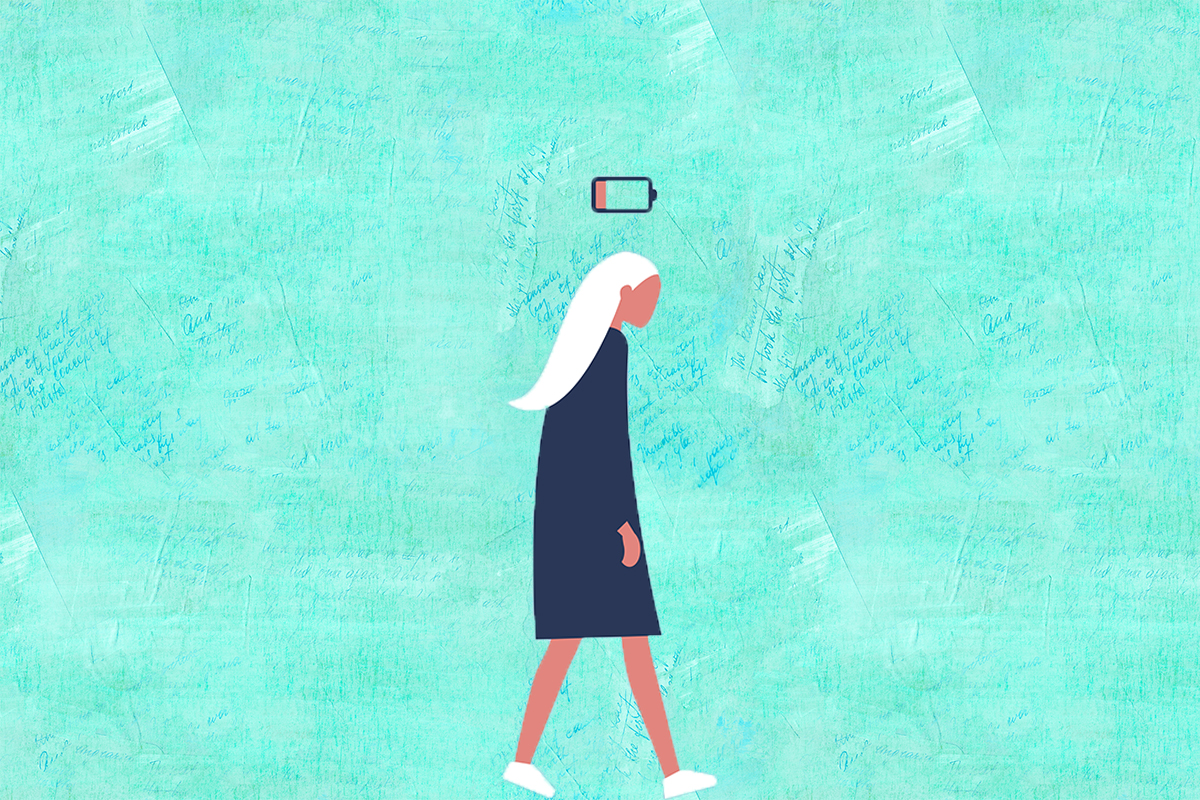I had a crying breakdown several days after the Poway synagogue shooting. I was trying to push down my anger, sadness, and fear at another deadly pogrom in order to focus on figuring out grad school financial aid, apartment hunting, and last minute logistics around a protest where police were threatening to arrest activists. My best efforts to “keep it together” failed.
Several days later, I found myself comforting a friend of mine as they sobbed on my bathroom floor because they were terrified that they’d be run over by a car on their walk to synagogue.
I have three months of mail I’ve never opened and a host of voicemails I’ve never listened to. I hit the snooze button at least five times every morning, am exhausted all day, and use both good coping mechanisms (medication, therapy, a strong support network of family and friends) and bad ones (eating my feelings, drinking, impulse shopping) to deal with the unending onslaught of, well, everything.
Anne Helen Peterson recently wrote about “millennial burnout” for Buzzfeed, describing how a system designed to optimize every aspect of daily life and demand nonstop low-paying work causes young people to have difficulty with basic tasks and errands.
I hate most of the “Boomer vs. Millennial” discourse, but it is true that millennials are feeling the crunch from a sociopolitical and economic system designed to be as cruel as possible. I’ve worked crappy jobs in retail, food service, and the nonprofit industrial complex for years, but I’ve come to realize my burnout is caused by anti-Semitism more than anything else.
Anti-Semitism is the background hum of my daily life. It presents itself as nagging questions and gruesome hypotheticals, and the nonstop exhausting work of trying to convince gentiles to care about it. I am constantly frustrated by the fact that no one seems to care about Jewish people or anti-Semitism unless Jewish people remind them repeatedly that we exist. I’ve had to explain to a local LGBT organization that they can’t just have a panel of all Christians for a “faith and sexuality” discussion. I’ve had repeated discussions with the socialist group I’m in that yes, Jeremy Corbyn really is anti-Semitic. And I’ve had to repeatedly work with a man who made anti-Semitic comments to my face while doing immigration advocacy work. A local candidate for public office praised Hitler on her social media (seriously), and the county Democratic Party’s response was to say they didn’t financially support her campaign. What’s even worse is that this didn’t even register as a worthy news story for local media.
The day after the Poway shooting, another organizer was confused and taken aback when I responded “pretty terrible” when they asked me how I was doing. The idea that a deadly attack on Jews would take a toll on my mental health didn’t register.
I do find that actively participating in my local Jewish community benefits my mental health and gives me a sense of purpose, but I’ve also found the local community to be frustrating at times. During a synagogue-sponsored brunch discussion, people complained that people of color “play the victim” and could bootstrap their way out of systemic oppression, and that the synagogue-run food pantry should place greater restrictions for people seeking assistance. A member of my congregation told my friends that she didn’t care about anti-Semitism because Jews are horrible and get what they deserve. Hearing comments like that from members of my own community is like having my heart stepped on.
Meanwhile, the local “young adult” programming seems more focused on attracting young Jewish people to participate in activities than checking in with us and making sure we’re thriving. When I told a congregant that I was writing an essay on burnout, he asked, “But you’re so young, how could you be dealing with burnout?”
When I taught at the local Sunday school, the administration sent out multiple letters to families with details about security upgrades, but my bosses never once asked us if we were doing okay. I had to make a rule not to read Israeli media before teaching, because there was no way I could teach children to love being Jewish with the images of people murdered in terrorist attacks stuck in my head. My bosses wanted me to avoid teaching “unhappy” subjects, which is a bit impossible when the Passover haggadah reads “in every generation they rise up to wipe us out.” Maybe if we helped children process difficult topics starting at a young age, my friend wouldn’t have broken down crying on my bathroom floor.
In the end, I don’t know how this vicious cycle can end. It would require non-Jews actively taking a role in fighting anti-Semitism and putting in the work to ensure that Jewish people have a seat at the table in social movements. It would also require Jewish institutions recognizing how a hostile economic system and a constant deluge of anti-Semitic acts are taking a real toll on young Jews. And honestly? That’s just not realistic.
All I can do is to be boldly Jewish in ways some would find difficult and inconvenient. I get to be the killjoy asking if the food at the anarchocommunist potluck is kosher. I’ll be the one reminding other organizers that I can’t attend events on Shabbat and other holidays. And I’ll continue to hold people accountable for anti-Semitism when I see it. But I have to be honest: It’s wearing me down. I can only hope my burning desire for a more just world doesn’t get extinguished by absolute exhaustion at the indifference of those around me.



